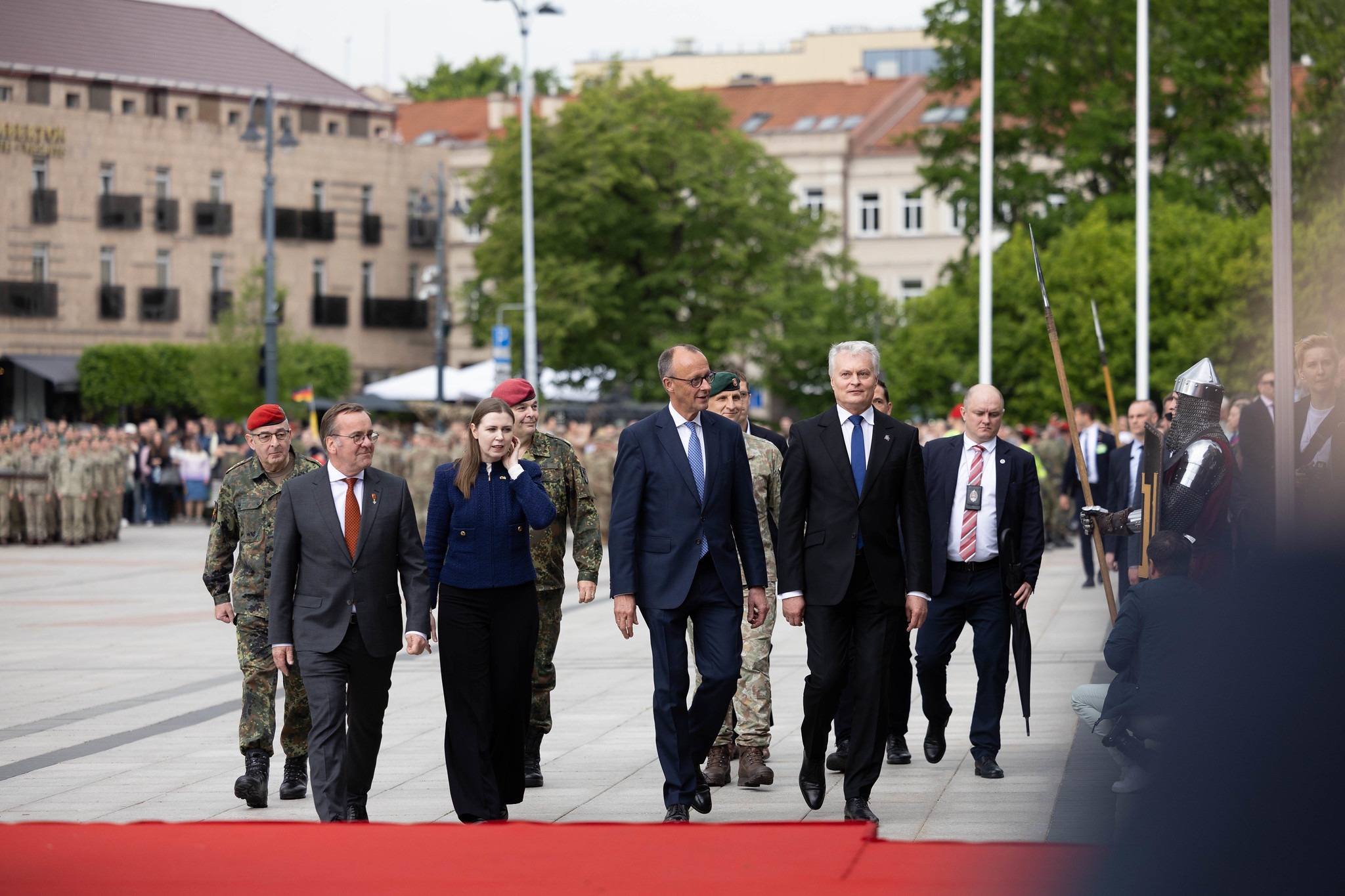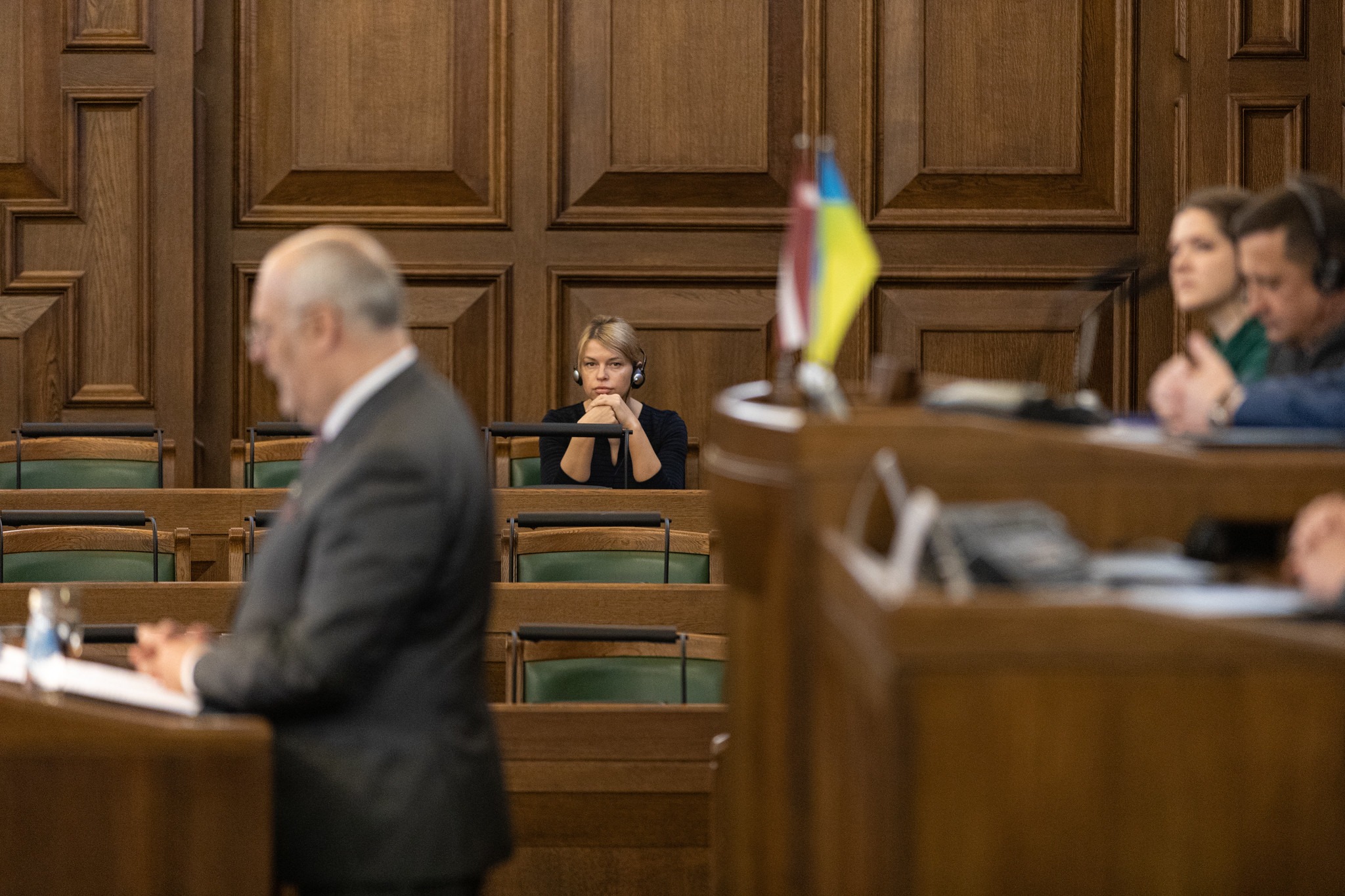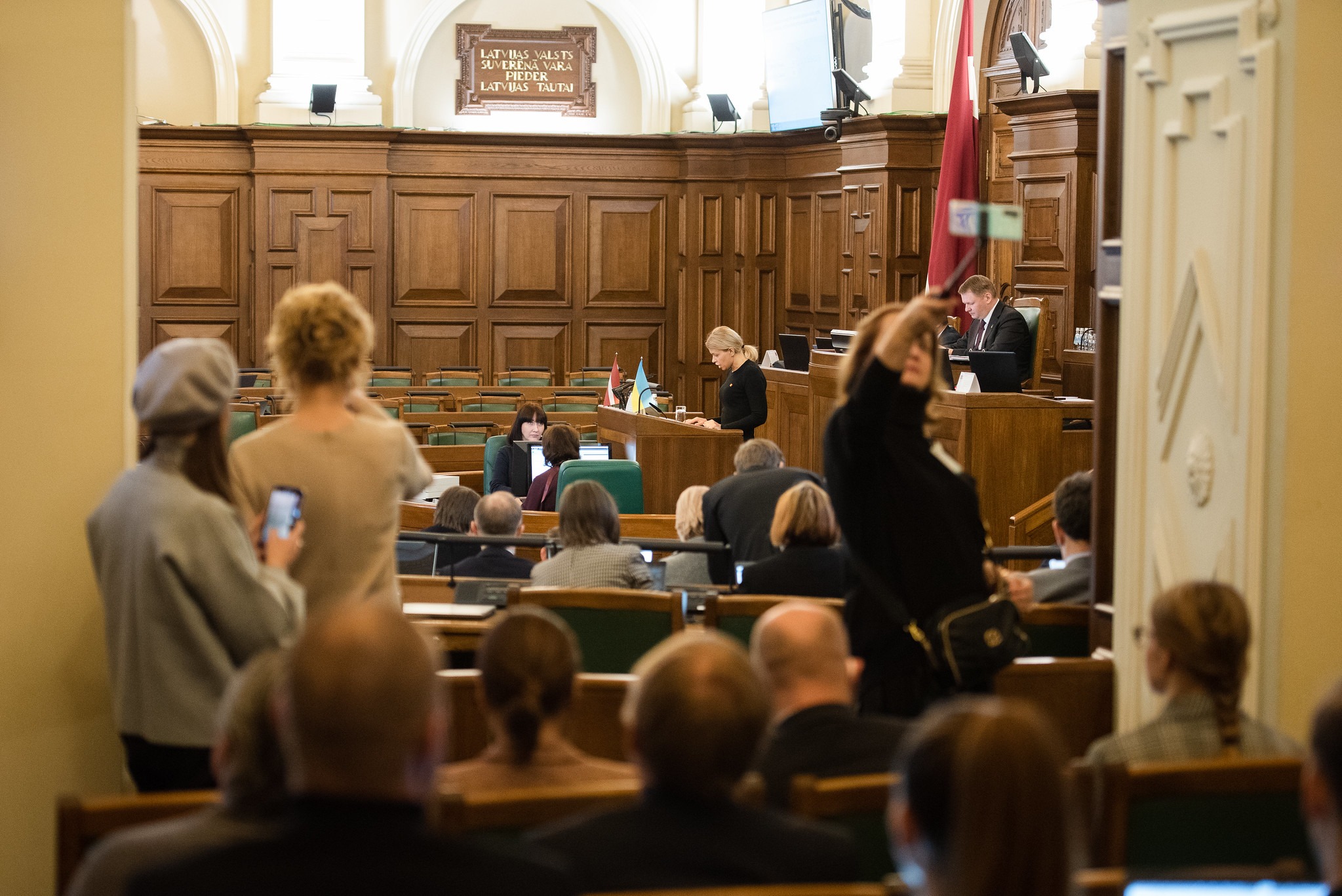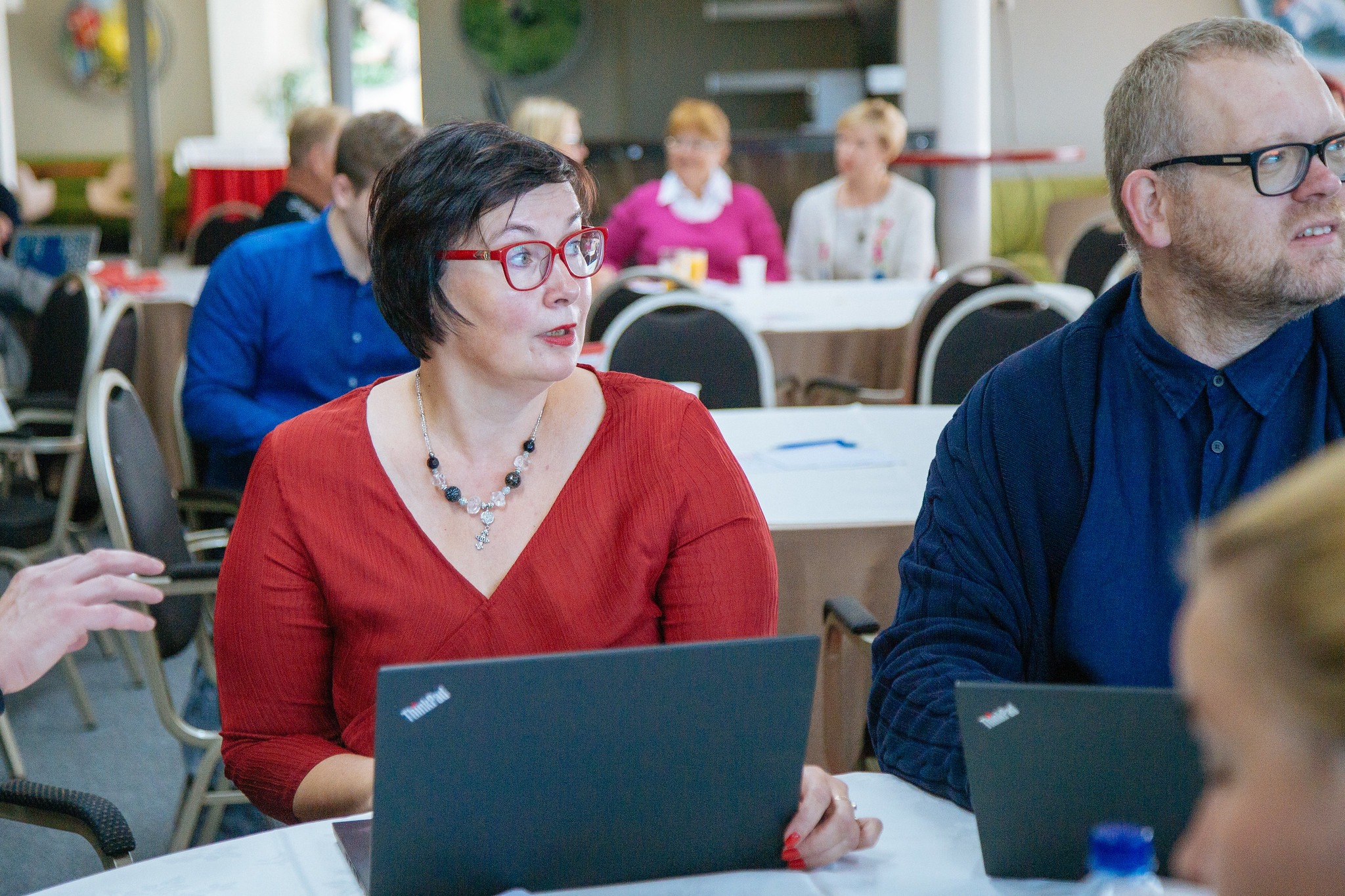
Key Insights:
Social media in Lithuania saw a surge of activity throughout February, with diverse topics trending. Awario monitoring tool identified that the stories that generated the highest audience engagement were the following ones:
- The death of Alexei Navalny and its aftermath, including the speech by his wife Yulia Navalnaya, speculations about the plausible effect his death may have on the war, and the discussions about the Artic prison in which he was kept;
- The ongoing Israel–Hamas war, with media outlets primarily discussing claims by Hamas that it is considering the Paris proposal for a ceasefire in the Gaza Strip;
- The recent investigation into suspicious financial transactions involving Šarūnas Stepukonis, a former BaltCap Infrastructure Fund partner suspected of embezzling millions of euros;
- Russia’s war against Ukraine, discussing Putin’s vague plans for establishing a demilitarised zone in Ukraine and the fact that Ukraine killed more than 7,000 Russian soldiers in the city of Avdijivka and promised the “most terrible” revenge;
- The official start of the 2024 Lithuanian presidential election, as the Central Electoral Commission issued the forms confirming the names of ten candidates who must now try to gather 20,000 signatures to secure their candidacies,
- The recent decision by the Chief Official Ethics Commission that Lithuanian President Gitanas Nausėda and the ambassador to the UK, Eitvydas Bajarūnas violated the law by using government funds for a private visit to the Royal Opera House in London, thereby mixing private and public interests,
- The completion of the ‘Radarom’ fundraising campaign in support of Ukraine, marking two years since Russia’s full-scale invasion, resulting in Lithuanians donating more than €8.2 million;
- The decision to grant Lithuanian citizenship by way of exception to American figure skater Allison Reed;
- Extreme weather conditions, with cold temperatures and icy roads majorly affecting traffic;
- Outlets in Lithuania linked to the Kremlin maintained a steady stream of content critical of the government.
Media monitoring tools revealed that the most engaging stories in Kremlin-aligned media outlets were mainly related to domestic issues. Pro-Kremlin outlets covered the Šarūnas Stepukonis case extensively, claiming that he was not working alone and naming specific officials who “stood behind all of that”. Media outlets also openly criticised ruling politicians, questioning their transparency. Kremlin-aligned outlets mainly targeted Monika Navickienė and Justas Džiugelis, accusing them of nepotism and lobbying, respectively. These same outlets also portrayed immigrants very negatively, presenting the rhetorical headline “Are they doing whatever they want?” and analysing specific cases of possible crimes committed by foreign citizens
As February 2024 marked two years since Russia’s full-scale invasion of Ukraine, it was also visible in spikes in the number of articles related to Ukraine that day. Articles published discussed Russia’s war in Ukraine, claiming that “Lithuania will enter the war in Ukraine together with the Poles by sending their troops”. Articles criticised the government, stating that “Lithuania does not need the war with the Russians that is being prepared by this traitorous government“ and broadly portraying Ukraine’s victory as elusive and its government as “untrustworthy. Other articles with lots of engagement mocked Lithuania’s “unwavering support” for Ukraine and hypothetically discussed “who is actually benefitting from all these fundraisers”, vastly referring to ‘Radarom’ campaign that fundraised millions of euros. During this reporting month, Kremlin-aligned outlets also widely covered US journalist Tucker Carlson’s interview with Russian President Vladimir Putin. They claimed that the conversation touched on important topics such as the threat of war with NATO, the situation in Ukraine, and a possible global nuclear conflict.
Overview of findings:
- A total of 527 articles (compared to 713 articles throughout January) were scrutinised from four Kremlin-aligned media outlets still operating in Lithuania: 77.lt, bukimevieningi.lt, ekspertai.eu and laisvaslaikrastis.lt.
- News outlet 77.lt was again the most active one, releasing 325 pieces or 62% of all articles scrutinised during this month. The official Facebook page of the same media maintained a similar pace of activity, releasing 152 posts (averaging more than five posts per day), compared to 160 published last month. This outlet further shows regular and substantial activity, highlighting the need for close observation to assess the possibility of a significant number of biased publications.
- Moreover, with the Facebook platform, among the most active pages – one of the main pro-Kremlin actors and a well-known participant in anti-government protests, Antanas Kandrotas, publicly known under the nickname Celofanas (Cellophane). Important to note that the media outlet 77.lt is also strongly associated with the same persona. On his page “Celofanas LIVE”, he managed to maintain a striking pace, publishing even 74 posts throughout February. Even though it was a bit less compared to 105 posts per January, it is worth reminding that Celofanas is imprisoned at the moment, and his page still manages to maintain such activity. During this month, a huge part of the live video streams featured other people and his fellows, including such well-known names in Lithuania as anti-LGBT activist Petras Gražulis. Videos featuring Gražulis were not only highly engaged but also actively supported in the comments section.
- One post from the “Celofanas LIVE” page stood out with its remarkable engagement (see screenshot on the right), scoring over 7k interactions (reactions, comments and shares combined) from social media users and being watched over 200K times. Live video this time captured Celofanas in the courtroom, handcuffed, talking to his fellow supporters who came to the trial. Most of the conversation discussed Kandrotas ‘harsh’ and ‘traumatising’ detention and its aftermath. Commenters expressed huge admiration and support for Celofanas, claiming that “handcuffs do not make a change when you are free inside” and claimed that the ruling politicians are afraid of him and, therefore, imprison the one who ‘dares to tell the truth’.
- Another post from the same Facebook page is worth mentioning: it included a screenshot of the chat, with a picture of Trakai castle and a message “already removed” (see screenshot on the right), referring to a Ukrainian flag that’s been hanging there for some time. A screenshot of the chat was shared with a short comment from the post’s author: “We did it! Thanks for the brave people!”. Over 400 comments expressed mass support for such a move, expressing “huge respect”, praising “such bravery”, and claiming that “we finally got Trakai back”. Similar content, diminishing Lithuania’s support for Ukraine, is visible throughout the page.
- Data from the Awario media monitoring tool showed that the topic of Russia’s war against Ukraine was less engaged and reached by the audiences compared to the month of January. Daily distribution of content within Lithuanian media is visible in the graph below. Noteworthy is the spike visible on the 24th of February, resulting in nearly 500k reach per day, marking the two years since Russia’s full-scale invasion of Ukraine.
- The same monitoring tool also revealed that 16% of the pieces captured by the monitoring tool held a negative sentiment (see graph below). Two main spikes of content holding a negative sentiment are visible in the graph, the second one matching the start of Russia’s invasion day. Percentage signals a noteworthy consistency in the usage of Russia’s war in Ukraine for the spread of anti-Ukrainian and anti-government narratives. It is also worth noting that media monitoring tools are unable to recognise sarcasm, which is very commonly used by Kremlin-aligned actors, so the percentage of negative sentiments might be way higher than noted.
Story of the month: Suspected embezzlement of millions
During this reporting period, a significant financial scandal dominated the Lithuanian media space. On 2nd February 2024, the European Public Prosecutor’s Office requested the arrest of a former partner of the BaltCap Infrastructure Fund in Vilnius. Šarūnas Stepukonis was suspected of having misappropriated €27 million from the fund. This revelation has triggered a complicated blame game and raised questions about oversight and potential connections between this case and the gambling industry.
The online bank handling Stepukonis’ transactions claims that it flagged suspicious activity to the financial authorities but received no response. The central bank of Lithuania has deflected its responsibility due to the registration of the fund in Estonia. Lithuania’s Financial Crime Investigation Service has admitted that it opened and then closed an investigation into the case. Heated discussions popped up in the comments sections of stories covering the case since the very first days. For example, a Facebook post linking to an article by the newspaper Vakarų Ekspresas (see upper right) received significant engagement and comments pushing various conspiracy theories. The most-liked comment claimed that Stepukonis was not working alone and that there was a “whole system” facilitating the crime. Other social media users strongly supported this statement, promoting anti-government sentiment and accusations against senior officials of “benefitting themselves”.
As time went by, the interest in this event did not lessen: articles shared at the end of the month, e.g. post by diena.lt on the 27th of February (see screenshot on the left), continued to gather notable engagement by the social media users. Commenters condemned the idea that Stepukonis was working alone and claimed that “associated people are afraid of the responsibility that comes after making a joint crime”.
The officials most closely associated with the event, namely Minister of Foreign Affairs Gabrielius Landsbergis and members of the Conservative Party, are the subject of most accusations; however, no valid evidence of these claims has yet emerged. Controversial Labour Party politician Artūras Skardžius wrote a Facebook post in which he directly accused Landsbergis and the whole Conservative party of “remaining silent” and “not confessing to their involvement in the crime” (see screenshot on the left). He provided disparate and unverified arguments to support his point. His accusations were enough for his followers, who actively engaged with the post and reshared it more than 3K times. Commenters actively celebrated that “the truth has been told”. Kremlin-aligned media outlet Respublika.lt reshared the same post, prompting nearly 2K more reactions, including hundreds of supportive comments continually promoting these anti-government sentiments. One of the most-liked comments cites “the grandpa”, referring to Gabrielius Landsbergis’ grandfather, the first post-independence Lithuanian head of state Vytautas Landsbergis. The comment states, “One who lies, also steals.” Among highly engaged and summarising the whole approach to the event were such comments as: “Law enforcement institutions clearly mock the people of Lithuania – it is known that to lose and appropriate such an amount of 40.4 million alone is big nonsense = ha ha ha like we believed that. A good company gathered and …………” and simply put, “incomprehensible to common sense what is happening in Lithuania” (see originals below).
Beyond fueling anti-government sentiment, this case has broader potential consequences. As Stepukonis is suspected of gambling money away in casinos, politicians are calling for stricter measures on gambling. Such measures include a complete ban on advertisements relating to gambling. This proposal has prompted vehement opposition from media outlets, which may face significant advertising revenue should this ban come into force. This growing scandal exposes potential shortcomings in financial oversight, raises questions about links between this situation and the gambling industry, and significantly impacts BaltCap’s projects and reputation. The story is far from over; further developments are expected to shed more light on its intricacies and ramifications.









